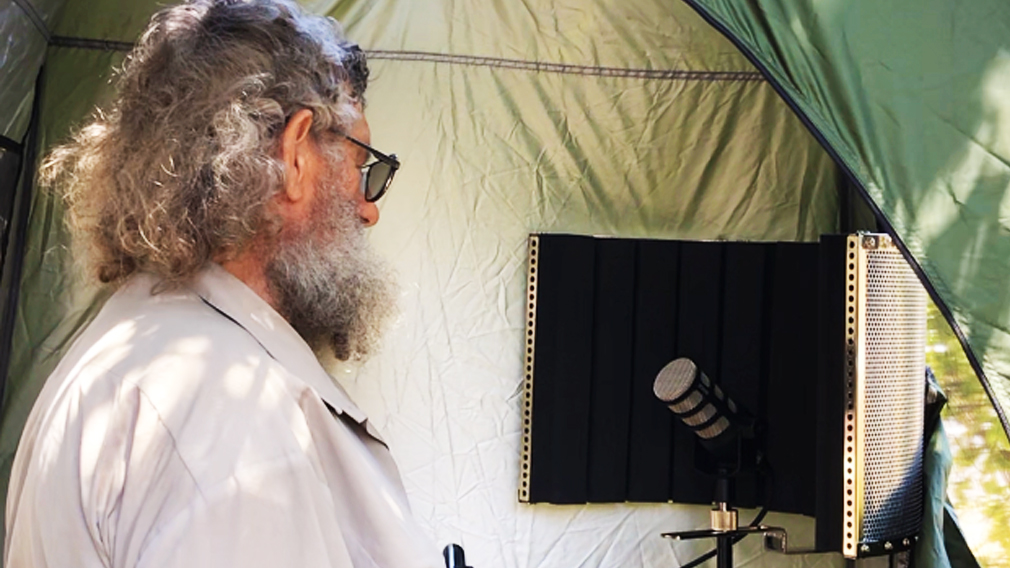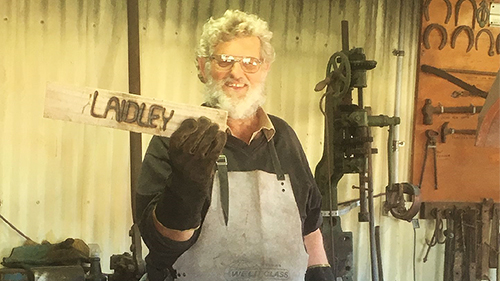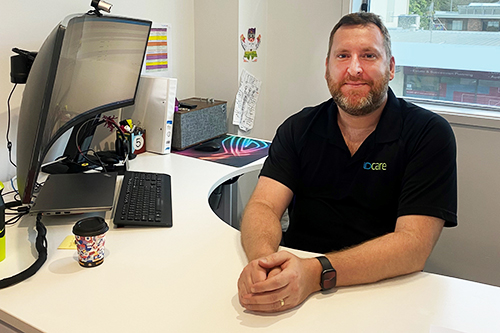Scream! Novel scam combat approach goes bush

Ron Johnstone was the first to “scream at a scammer” as part of IDCARE’s new cyber resilience program in rural communities. (Supplied)
Ron Johnstone would have liked to have used “a few more expletives” but, as the first to make use of a new transportable “scream booth”, he managed to keep his raised voice PG.
“You hurt a lot of people here,” the volunteer museum worker in the small rural Queensland town of Laidley says sternly into a microphone recorder after his organisation was scammed.
“We're disappointed and hurting like hell.”
Johnstone’s recording – captured in a makeshift tent set up near his Laidley Pioneer Village workplace – is one of the more novel aspects of a new cyber resilience outreach clinic program run by national identity and cyber support service IDCARE. The program comes off the back of research by the organisation which found scam victim rates in remote and regional communities are almost three times more prevalent than their city counterparts and the average money losses are 40 per cent higher.

Laidley Pioneer Village volunteer Ron Johnstone, in the museum's blacksmith’s shed, said the scam gave him "a sick in the gut" feeling. (Supplied)
“The numbers shocked us,” says IDCARE managing director David Lacey. "It's not just the domain of big cities; it’s seeping through to all corners of the country.”
As part of the first trial “pop-up” clinic, to be rolled out to 50 remote and rural communities around the country over the next two years, Johnstone was among a group of local Laidley residents and business owners who came along to hear about the latest cyber scam activity in their community and how to stay safe.
Lacey says the initiative, a first for his non-profit organisation and supported by Westpac, aims to raise awareness about specific cyber scams prevalent in the most susceptible small communities as measured by IDCARE’s Scam Vulnerability Index. During each clinic, Lacey’s team will run through cyber health checks with locals, giving them a sense of how secure they are and ideas to improve security.
“We know who's engaged IDCARE in those communities, we know what the scam vulnerability profile looks like for that community and what the real risks are,” he says.
“Most importantly it’s an opportunity for us to recruit community champions that we can then feed information to about what's the ongoing risk confronting the community, and remotely support them to be advocates and disciples of the message.
“Our intention is to… sustain that network of 50 communities, (and) revisit their vulnerability index over the next 18 months to see what's changing. It's quite a fresh approach, very much empirically based.”

IDCARE managing director David Lacey. (Supplied)
Lacey, who founded IDCARE in 2014 after 15 years working in the identity security field including as a former executive director of the Australian Crime Commission, says a few common factors may be playing to the higher rates of scams in the bush, which include all the typical types from remote access and email compromise scams to investment and relationship scams.
These include the longer than average timeframes to spot and react to the deception – for example, postal delays are common in the bush, so alarm bells will not start ringing as quickly for the recipient of a parcel ordered online, giving plenty of time for scammers to make good use their stolen payment details.
The location-based role of “plausible deception” may be another factor – for example, offers of remote working employment contracts make sense in the bush, and given the frequency of internet dropouts, it seems highly conceivable that a trouble-shooter who calls is legitimate.
For Laidley Pioneer Village where Johnstone volunteers, the community-run organisation had its web domain hijacked by criminals when they didn’t realise it had lapsed during their pandemic shutdown.
“We started getting these phone calls from people saying they'd ordered clothes from us,” says Johnstone, who is also Laidley’s town crier during community events.
He says IDCARE traced the scam back to Canada where criminals were using clothing sales via the website as a rouse to harvest people's payment details. Working with local police, they wrestled back the domain.
“We were fortunate that we didn't lose money, but others did, and it was our reputation and our name,” Johnstone says.
“For us, the frustration was not being able to do anything about it. It gave us a sick in the gut feeling and scammers don't give a damn.”
Johnstone says IDCARE’s pop up scam clinics are “a necessity” in rural and remote towns to help small communities in the fight against scammers.
“It's a must, it's a need. The people here got a lot out of it,” he says, also noting with a smile that besides the therapeutic benefit of using the “scream booth”, it was good knowing IDCARE would replay his recording directly to scammers.
“If more awareness helps save just one other organisation like us who is targeted, it’s wonderful.”
Westpac’s Protect Yourself page offers more information to help avoid scams, and customers can access a Security Wellbeing Check on the mobile banking app for additional protection measures.




